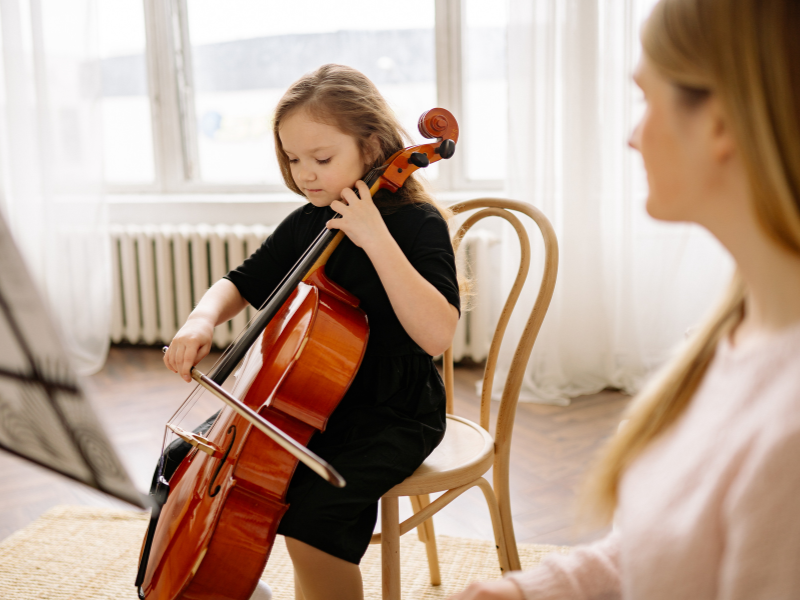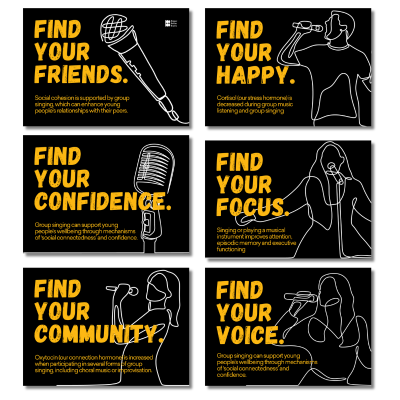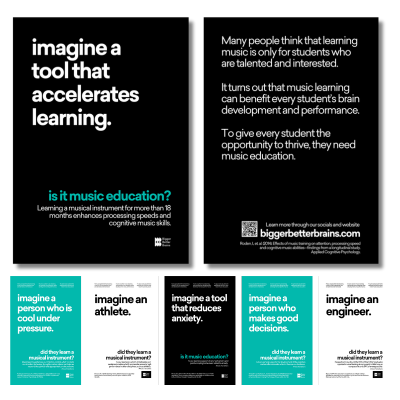
Research Updates

Here at Bigger Better Brains we believe that through educating yourself, you can then educate and affect positive change in your community.
With all of the research in the field of neuromusical science, our BBB Research section serves as a content hub for you. We regularly share findings and break down the latest research to educate and inspire discussion. We hope you enjoy this page on our website and share BBB news with your colleagues, parents and students.
- Advocacy
- Ageing
- Aging
- Attention
- Auditory Processing
- Cognitive Health
- Communication
- Community
- Dyslexia, Autism & ADHD
- Early Childhood
- Executive Function
- Fireworks
- Impulse Control
- Language & Literacy
- Memory
- Music Learning
- Music Listening
- Neural Development
- Parents
- Personality
- Productivity
- Prosocial Behaviour
- Prosody
- Reading
- Rehabilitation
- Research Bites
- Research Methods
- Research Quick Reads
- Reward
- Singing
- Social Skills
- Video
- Wellbeing & Therapy
- Working Memory
How Music Learning Keeps Your Brain Sharp for Life
Engaging in musical activities offers profound benefits for our brains, enhancing various cognitive functions and emotional well-being.
How Playing Instruments and Singing May Boost Your Brain
Playing an instrument or singing in a choir isn’t just fun—it’s great for brain health too. A recent study found that people with musical experience have stronger memory and thinking skills than those without.
Playing music when you're older could come with brain benefits
Imagine a world without music. There are no high school marching bands, no commercial jingles, and no need for Grammy Awards. It’s a rather dreary thought, yes?
Music Education vs. Brain Training Programs
Recent research has revealed that brain training programs for children do not lead to significant improvements in real-world cognitive functions.
Could 'musical medicine' influence healthy aging?
Imagine a world where music serves as a powerful tool for healthy aging. Dr. Psyche Loui at Northeastern University explores how music strengthens brain connections, enhancing memory and emotions.
A 90-minute habit that can boost your brain and mental health!
Dr. Seinfeld's research involving participants aged 60 to 85 found that those who took piano lessons showed remarkable improvements in executive functions, attention, and inhibitory control.
Unlocking learning potential through music
Neuroscientist Nina Kraus notes that playing an instrument is one of the richest brain activities, leading to better language and reading skills.
How Music Primes the Brain for Learning
This article delves into the transformative impact of music education, particularly for underserved students, and a strategic tool for addressing academic challenges, boosting attendance, language skills, and social integration.
The Key to Healthy Ageing
New research suggests that playing instruments and singing may support brain health as we age. A study found that engaging in musical activities, especially playing keyboard instruments, correlates with improved memory and cognitive function later in life.
The Cognitive Symphony of the Brisbane City Pops Orchestra
This article dives into the history and enduring vitality of the Brisbane City Pops Orchestra who have recently celebrated their milestone 50th-anniversary performance. The orchestra boasts a diverse ensemble of musicians spanning generations, including members who have been involved since the beginning.
The late-life cognitive benefits of early musical training
This study found that people who learned for more than 10 years didn’t have any differences compared with the control group, but they did find the late-life cognitive benefits of early musical training…
Make your brain more efficient
How efficiently is your brain working today? Music learning trains the brain to use fewer brain resources when compared with non-musically trained people (and in this case those who are also bilingual).
Get your dopamine flowing with music!
Most people enjoy listening to music, but some people do not. For some, music just does not do much; either emotionally or cognitively. Studies around how people experience music can help us understand the mechanisms behind the enjoyment of music.
How does our brain use rhythm to get back in sync?
It is hard to conceptualise that our brain waves can be in sync or out of sync. Yet this concept of brain wave synchronisation is fascinating to neuroscientists as they are finding that the more consistent the synchronisation, meaning the longer our brain waves can stay in sync, the more effectively we can learn.
Your Brain Will Thank You for Being a Musician!
One of BBB’s favourite researchers, Dr Patricia Izbicki, has done all the hard work for us and summarised the five great reasons why music learning is the childhood experience that just keeps on giving well into our later life.
Music is nature’s own little buzz
Ever wondered what that tingling sensation in your brain or on your scalp is called when you listen to music? We hadn’t wondered, but we feel better now that we know. It’s called the Autonomous Sensory Meridian Response (ASMR). We probably won’t remember that long name or the acronym but “head orgasm” is a term that won’t be forgotten.
Carnatic singing (a form of Indian music) enhances working memory
The location of neuromusical research tends to lend itself to the study of music learning through the Western Art Music genre. This has been useful when it comes to the ability to compare research study findings but not as useful when it comes to our understanding of the impact of non-Western Art Music genre on brain development.
Music training could guard against mood and cognitive disorders
One of the challenges with neuromusical research is that it can be so technical that it is hard to connect what the studies find with what it could mean in the “real world”. This study is a perfect example with the title “Gamma-Band Frequency Analysis and Motor Development in Music-Trained Children: A Cross-Sectional Study”
Drummers are thick…but not in the way we joke about!
Drummers, very unfairly, can be the target of some pretty mean jokes and stereotypes. For example, What do you call a drummer with half a brain? Gifted!
Music therapy and Autism - Dr. Summa-Chadwick
Music learning has so many amazing benefits for students, but did you know that music learning is often used as a therapy tool for children with autism?
Music is turning back time for older adults
This paper looked at the research that has found that musicians have better speech in noise perception and asked if short-term music training might be beneficial for older adults, even if they didn’t have music training in their background.






























